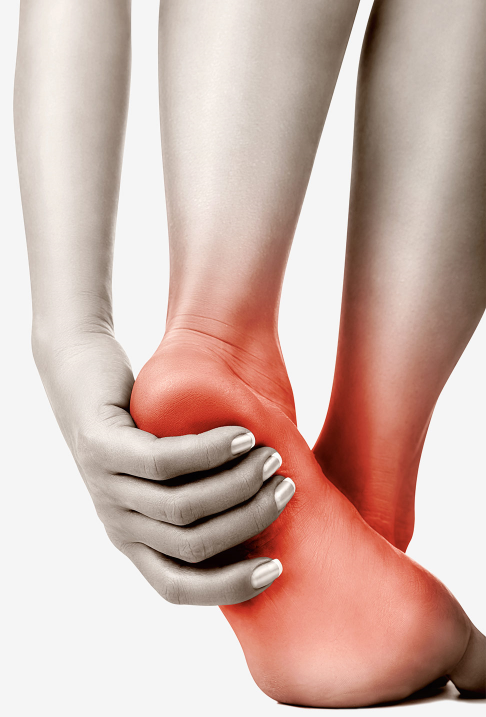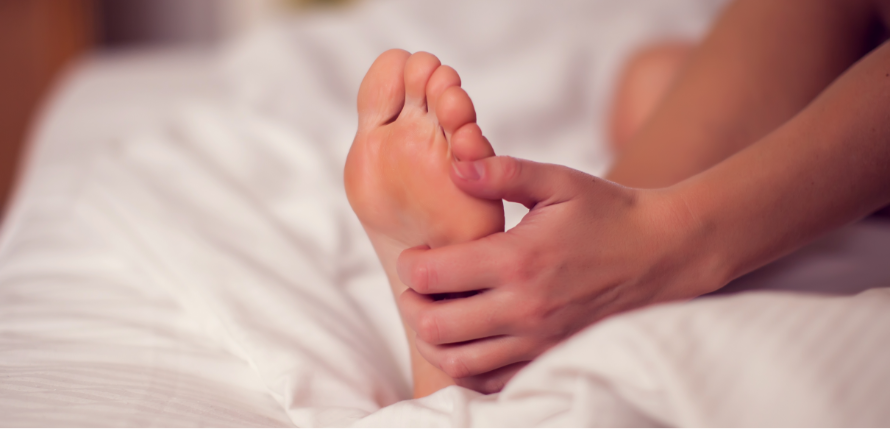Heel Pain Treatment Pennant Hills
Natural Alternative Treatment for Heel Pain & Heel Spurs
At Alternative Foot Solutions, we provide alternative treatment solutions for people suffering from heel pain in Pennant Hills and surrounding communities.
At Alternative Foot Solutions, we provide alternative treatment solutions for people suffering from heel pain in Pennant Hills and surrounding communities.
Heel pain can refer to a number of conditions impacting the tissue, muscle, nerves and bone in the foot and ankle. While heel pain results in inflammation and strain, the underlying cause can often be traced back to misalignment of the bones of your foot and ankle that leads to compensation of the soft tissues around the heel area.
Heel pain is a very common complaint – up to 80% Australians will suffer with heel pain at some stage of their life.
Plantar Fasciitis is the most common and well-known cause of heel pain. This condition occurs when the plantar fascia, a ligament in your foot, gets micro tears around its attachment point at the base of the heel that bleed and become inflamed. Plantar pain is commonly felt in the morning, after weight bearing activity and after periods of rest or inactivity. If left unchecked the micro tears in the plantar fascia can lead to bigger tears which are much harder to address.
Beneath the heel bone lies a fat pad. The purpose of this pad is to provide cushioning when the heel strikes the ground. A range of factors that cause heavy loading to the heel can lead to inflammation of the fat pad. This condition can be very painful, presenting as a feeling of bruising at the heel.
A stress reaction occurs when there is repetitive strain pulling on the heel bone from the point where the plantar fascia attaches. This often occurs as a secondary complication and is one of the reasons heel pain should be treated early.
Your foot contains a nerve, running down the inside of the heel near the plantar fascia. This nerve can become trapped, causing inflammation that presents as a shooting pain that radiates down the foot.


The main underlying cause of heel pain is misalignment of the bones of your foot and ankle. This leads to compensation of the soft tissues around the heel area, in turn causing micro tears in the tissue and associated inflammation. The result of this is heel pain.
As the underlying cause of most heel pain conditions is a level of misalignment of the bones in the feet, the most effective form of treatment is to address the cause at its base level.
The alignment of your joints will affect the way you stand and walk. Feet that are out of alignment will cause compensation through the soft tissues which leads to pain and inflammation.
Our team of podiatrists and osteopaths treat the underlying cause by correcting this misalignment of the joints in your feet and ankles through a technique called foot mobilisation therapy. Foot Mobilisation Therapy utilises a gentle hands on technique to correct misalignment. We then reinforce this position by strengthening the muscles that surround the relevant joints.
Alternative Foot Solutions have successfully treated over 10,000 patients suffering from heel pain, plantar fasciitis, heel spurs, achilles tendonitis and severs disease, using conservative methods, for over 16 years.
The great news is that this change is long term and you don’t have to wear orthotics or change your shoes, or activity.